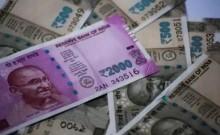
The central government's draft guidelines for the online pharmacy industry have raised serious concerns for players working in the expanding space. The draft also includes a possible overlapping role of state governments.
The gazette notification released by the centre on 28th August requires all the e-pharmacies to register with the apex drug regulator and central licensing authority, which is the Central Drugs Standard Control Organisation.
The Economic Times reported that one the clauses of the rules also empower the state governments to cancel the registration of the players which has led to the fear of overregulation in a sector that has emerged as a growing sector over the last three years.
Atul Pandey, a partner at law firm Khaitan & Co. speaking to the Economic Times said that "While the draft rules clearly mention a central licensing authority, as far as e-pharmacy marketplaces are concerned, there is also Rule 67T (3), which talks about the power of the state governments to cancel the registrations. The confusion lies around the question of where this power is coming from."
Moreover, it is also unclear the whether the offline players including selling medicines on online platforms will also have to register with the central licensing authority.
Pandey also added that "There is also a requirement under existing rules for each and every drug, retailers and wholesalers to obtain a license from the state authorities. It is not clear if the online portals will have to register with the state authorities in relation with the drugs sold through the portal."
India's pharma sector has been growing at a very healthy rate in the recent past. According to the India Brand Equity Foundation, India's pharmaceutical sector is valued at $33 billion in 2017. Moreover, it is likely to grow at a Compound Annual Growth Rate (CAGR) of 22.4% over 2015–20 to reach $55 billion.
Growing with this rate, the country is expected to be in the top three pharmaceutical markets by incremental growth and it is also expected to become the sixth largest market globally in absolute size by the year 2020. There are numerous opportunities in the domestic e-pharmacy market but at the current levels, it has only captured 1% of the overall pharmaceutical market. Market research shows that it is expected to reach $3 billion by 2024.















